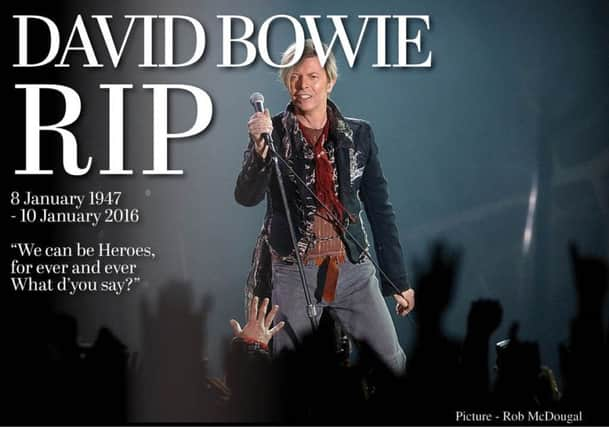VIDEO: Five game-changing moments from David Bowie


After understated musical beginnings, David Jones changed his name to Bowie. In the week of 1969’s Apollo 11 launch, he released ‘Space Oddity’ which gave him his first top 5 hit.
Bowie reinvented himself, taking on a new persona - Ziggy Stardust, the androgynous figure imprinted on the nation’s consciousness when he performed ‘Starman’ on Top of the Pops and outraged the nation by embracing guitarist Mick Ronson.
Advertisement
Hide AdAdvertisement
Hide AdIn 1975, ‘Young Americans’ was released, an album of what Bowie called “plastic soul”, which alienated some of his hardcore UK fans. Despite this, it was a hit in the USA, with ‘Fame (co-written with John Lennon) reaching #1 in the Billboard charts.
Only a year later, Bowie introduced himself as ‘The Thin White Duke’ - and released three albums in the space of two years. Dubbed the “Berlin Trilogy”, his work with Brian Eno led to ‘Station to Station’, ‘Low’, and ‘Heroes’, the title track of which became a pop classic.
Following worldwide success with Queen, Mick Jagger, several acting roles, his ‘metal’ project Tin Machine, and scoring soundtracks for film and computer games, Bowie seemingly retired from live performance. That is, until three years ago, when he announced album ‘The Next Day’ on his 66th birthday. Taking everyone by surprise, it was hailed as a “classic Bowie release” - which of course means as unexpected as was to be expected.